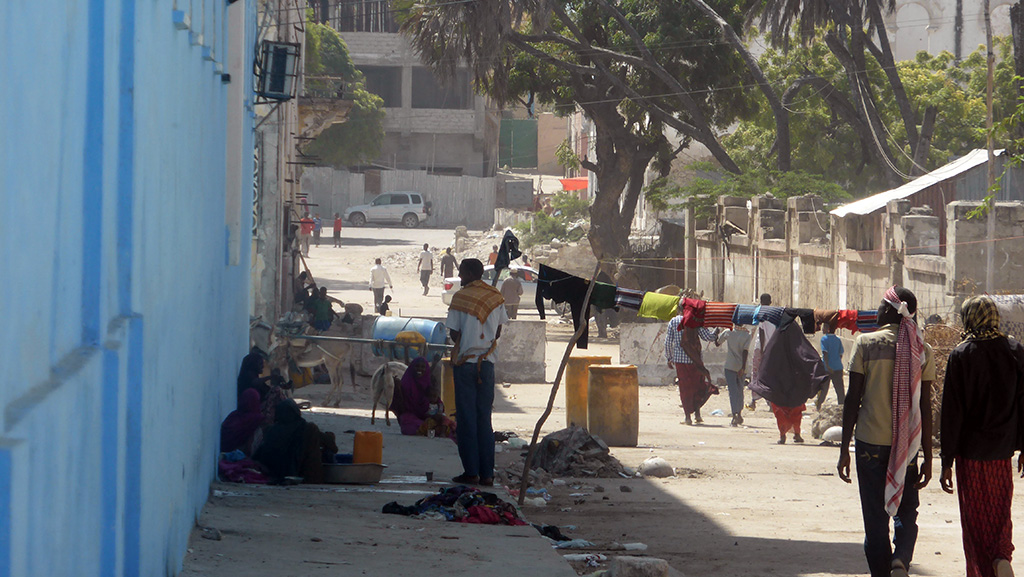Blog
Long form
5 stage framework for change management in fragile states
1. How do you plan for change management in a fragile state?
One good solution is to use a structured planning framework. We call the framework for the 5Ds: It’s a practical framework focusing on the sequencing of complicated reforms across five stages. It’s a planning and design framework.
Note that agile and adaptive methods are also necessary to execute programs in a fragile state. This framework is to ensure the long-term view is maintained.
The 5Ds is an easy to remember approach for managing the change process. It is applicable for structuring […]
How to implement demobilization of armed security forces
Conflicts come to an end. Armies need to be demobilized. This is a recurrent situation in fragile environments, a recent example being in the Ivory Coast where discharged soldiers are claiming demobilization compensation.
In other situations, the armies find themselves holding personnel that are not a good fit for the new security architecture: there may be too many, they may be too old, or they may lack the desired skillset.
A combination of factors is often at play in a fragile environment.
All the implications of fragility are visible in security […]
3 models of Supreme Audit Institutions
Legal and organisational models of Supreme Audit Institutions
Fragile and developing countries are prone to have legal and regulatory frameworks that have developed chaotically over time. Technical assistance to modernise or update legal and regulatory frameworks in such countries can also contribute to incoherent developments. Mostly, this happens when technical assistance is provided without consideration for the legal tradition of the recipient country.
The end results are then legal and regulatory frameworks that are misaligned, drawing on principles and concepts from various traditions with no attention paid to the coherence of the […]
Rethinking Centre of Government units
Centre of Government units can be important to coordinate and accelerate change across a government. Such units are trying to address implementation shortcomings by building heavy-hitting capability within key government institutions, typically in offices of the Prime Minister or of the President. The phenomenon has proliferated across the world in developed, developing and fragile states alike. In this discussion, we will provide some ideas for establishing such a unit in order to ensure it is an effective agent of change.
1. But first, what exactly does a Centre of Government […]
How to build the audititor general office from scratch
In an extreme low capacity environment with a newly formed government, how do you build robust governance institutions that will guarantee accountability? Where do you begin when there is a blank slate? Starting from scratch may sound ideal at first, but there are many challenges to solve along the way. Start by focusing on the key strategic questions, on what is truly critical to launch the institution. By intentionally leaving some decisions on the backburner until later, efforts can center on developing the basics. Then, using a structured management […]
3 steps to payroll reform in post-conflict states
Payroll systems in many fragile and conflict affected states are working poorly or not at all. Here are all the important issues to consider for design and implementation.
For many good reasons, governments prioritise design and implementation of robust payroll mechanisms. Robust payroll systems are fundamental for credibility of a fragile and conflict affected state.
In this article, we discuss the pros and cons of payroll reform, and also show a technical roadmap for design and implementation of such reforms.
1. Unreliable payroll is a major problem in many fragile and conflict […]
Leapfrogging technology in fragile states
Is it really possible to leapfrog technology? Perhaps not. The ever interesting Brookings have in conjunction with one of their annual development conferences commissioned this paper from Diego Comin at Harvard. What is so interesting here, is the empirical work documenting a fascinating, and perhaps intuitive pattern of global technology diffusion. The figures above are cut from the paper.
Two important phenomenons:
1. Technology is spreading, globally, at an increasing rate. Technological breakthroughs find there way around the world at an increasing speed. (and in the study going back 200 years) Indeed, […]
Kick-start infrastructure investments in a fragile state
How do you kick-start a government to design and execute a successful infrastructure program when there are no systems, people or processes in place to leverage? When starting from scratch, what is the best approach?
In this article, we examine some important lessons learned from a recent engagement, during which we provided support to design, implement and monitor a donor-funded program. This program, the first of its kind in the beneficiary country in decades, focused on the implementation of small-scale infrastructure projects across the country. It was unique in that […]
How to do data-analytics on a shoestring
How can you build robust analytics from paper copies, ledgers and disperse spreadsheets? This is a question many leaders in fragile and developing states are confronted with.
When seeking to build their organisation, management first tries to take stock of the situation: “where are we?” and “where do we want to go?” The capacity to answer each of these questions, and push for change where needed, depends very much on the management’s knowledge of its own organisation. This, in turns, depends largely on an organisation’s capacity to generate relevant data […]









